From March 14 to 15, 2018, a series of activities to celebrate the 50th anniversary of Hsuan Tsang Monastery were held in Kolkata, India. The Chinese Buddhist delegation led by the Vice General-Secretary Venerable Master Guangquan and the Director of the Tibetan Buddhism and Theravada Buddhism Office Venerable Master Qingyuan of The Buddhist Association of China. The Consul-General of the People’s Republic of China in Kolkata, Mr. Ma Zhanwu, also participated in the celebratory activities.
On the morning of March 14, the 50th anniversary celebration of Hsuan Tsang Monastery commenced. Distinguished guests who attended the opening ceremony included the Consul-General of the People’s Republic of China in Kolkata Mr. Ma Zhanwu, the Vice General-Secretary of The Buddhist Association of China and Abbot of Lingyin Temple Venerable Master Guangquan, the Director of the Tibetan Buddhism and Theravada Buddhism Office of The Buddhist Association of China Venerable Master Qingyuan, the Abbot of Hsuan Tsang Monastery in Kolkata Venerable Master Huirong, the Minister for Disaster Management and Civil Defense of the State Government of West Bengal Mr. Javed Ahmed Khan, the Member of the Minorities Commission of the State Government of West Bengal Ms. Maria Fernandes, the Chief Priest of Mahabodhi Temple in Bodh Gaya Venerable Master Chalinda Bhante, as well as other Chinese and Indian Buddhist believers. Venerable Master Guangquan, Mr. Ma Zhanwu and Venerable Master Huirong addressed the ceremony.
Venerable Master Guangquan said in his speech:
“Buddhism originated in India, thrived in China and has become one of the major religious beliefs in the world. Over the past two thousand years, Buddhism, as a shared cultural tradition of China and India, has closely connected the emotions and cultures of the two peoples and played an indelible role in the communication between different ethnic groups, solidarity among different regions and cultural integration. The story of Master Xuanzang traveling westwards to ancient India in search of Buddhist scriptures is well known to both Chinese and Indian people. I hope that the Buddhist Chinese and Indian communities work together to practice Buddhism in the spirit of the Buddhist benevolence and wisdom while learning from Master Xuanzang so as to make more contributions to the cultural exchanges and friendship between China and India.”
After the speeches, Venerable Master Guangquan together with Venerable Master Qingyuan presided over the blessing ceremony and the cornerstone laying ceremony with the traditional rituals of the Chinese Buddhism for Hsuan Tsang Monastery.
On March 15, an international symposium on the topic of “Buddhist Exchanges between China and India: Past and Future” was successfully co-organized by the Consulate-General of the People’s Republic of China in Kolkata, Lingyin Temple, Hsuan Tsang Monastery and the Chinese Institute of Central University in India at Oberoi Hotels & Resorts. Scholars had extensive discussions over such topics as the Buddhist exchanges between China and India, the comparison between Chinese Buddhism and Indian Buddhism, and the impacts of exchanges in Buddhism.
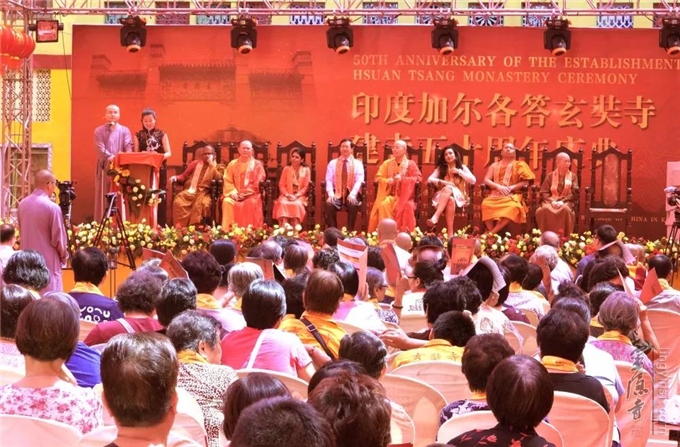 |
| Opening ceremony |
 |
| Venerable Master Guangquan delivering a speech |
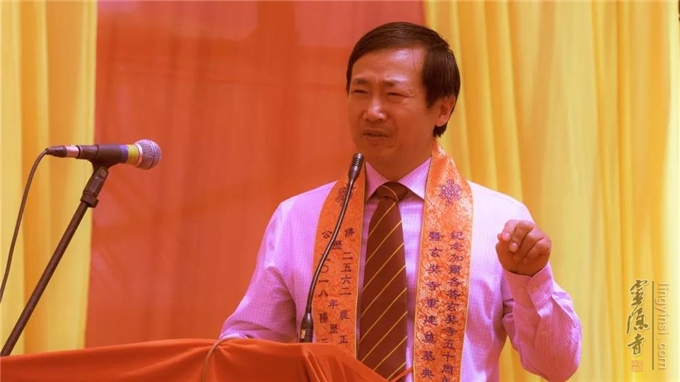 |
| Mr. Ma Zhanwu delivering a speech |
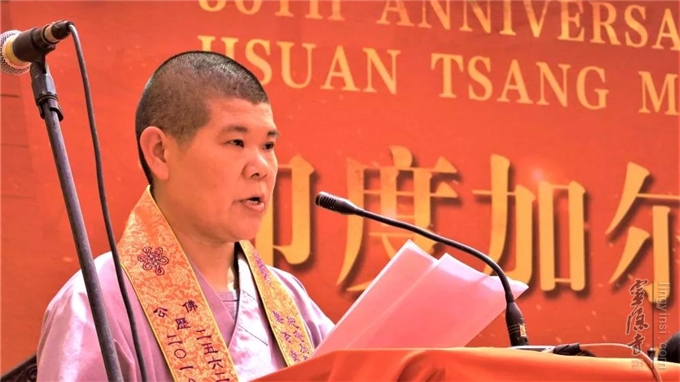 |
| Venerable Master Huirong delivering a speech |
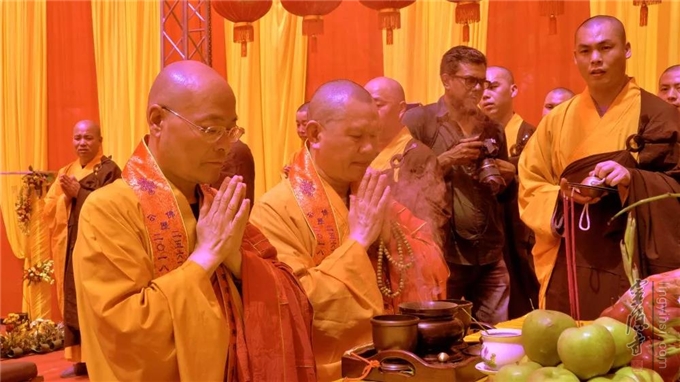 |
| Venerable Master Guangquan and Venerable Master Qingyuan presiding over the blessing ceremony |
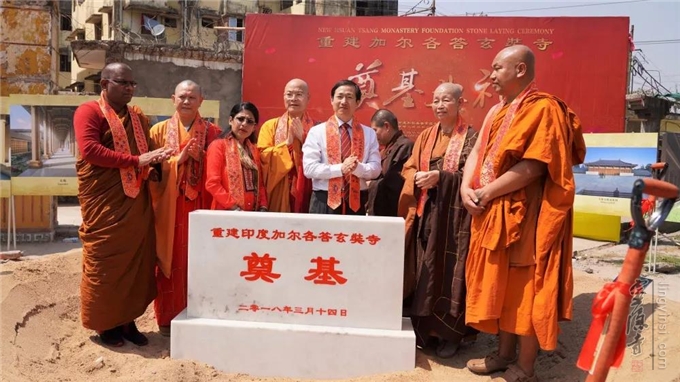 |
| The cornerstone laying ceremony |
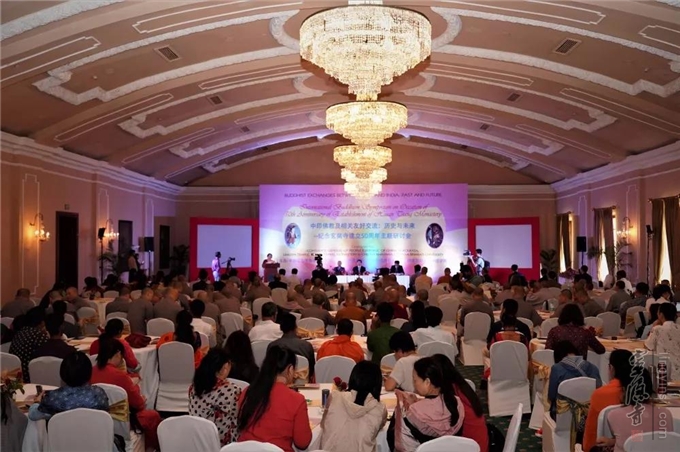 |
| Academic symposium |
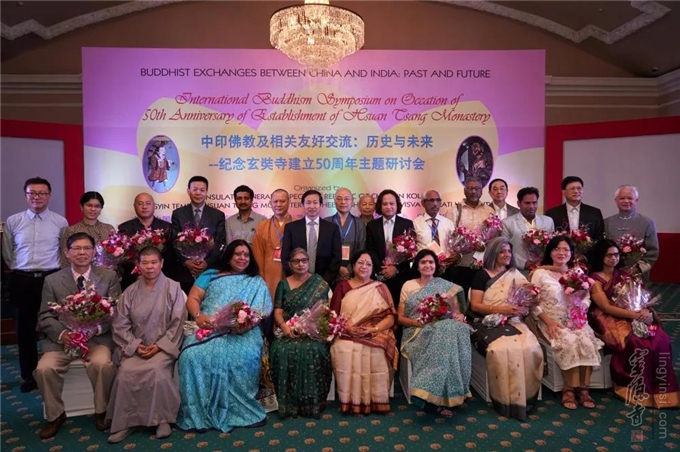 |
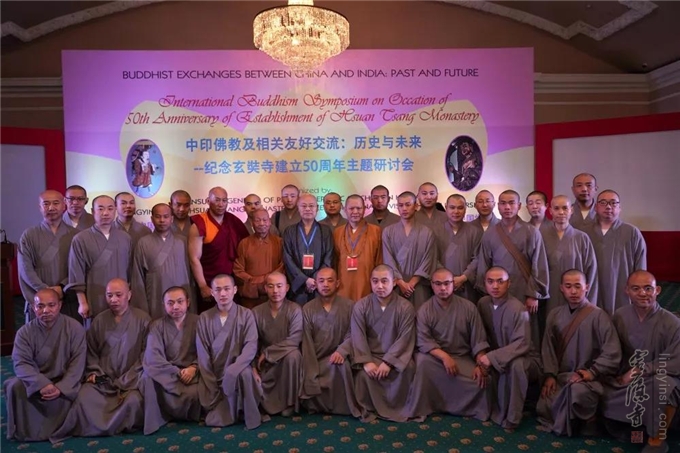 |
| Group photos |








